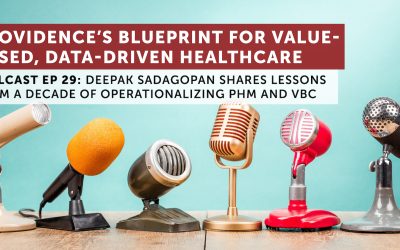Despite not having a personal health record (PHR) platform in the market, Google continues to get a lot of play in the press, at conferences and in the blogosphere. Not too surprising considering Google’s size, massive capitalization and the simple fact that over 50% of all Internet searches originate from its site and search is where most consumers start when going online for health related issues.
But with all the talk of Google and what Google might mean to the personal healthcare market when it eventually does introduce a product, one has to wonder: Okay, what might Google’s personal health solution look like and what features might it provide?
Brief History
This past summer, Google gave some hints on its personal health intentions when some screenshots of a prototype were inadvertently released. The prototype did not stretch the imagination beyond what one might find in any reputable solution in the market and Google went back to the drawing boards. In and amongst this, Google’s health group leader, Adam Bosworth left the company, which seems to have slowed internal development efforts, or at least signaled a pulling back from the lofty goals that Bosworth often pontificated upon.
In the ensuing months, Microsoft got the jump on Google introducing its own consumer centric personal health platform (PHP) HealthVault and the employer led consortium, Dossia, is back on track with their PHP development via a partnership with Children’s Hospital Informatics Program (CHIP) the developers of Indivo. These two platforms will compete with Google for mind-share and subsequently, market share in this immature market.
Looking Ahead, What Might We Expect
Google has been quite secretive about its future intentions, though in speaking with some who are on Google’s advisory panel, I’ve been told that Google’s plans are impressive, which got me to thinking, can one make an educated guess as to what Google may offer? The answer is yes, and you do not need to look far.
As discussed before, one of the major stumbling blocks to PHRs has been an inability to provide sufficient scale. Microsoft’s HealthVault and Dossia bring such scale within their PHPs for the smaller personal health application (PHA) vendors (e.g., PHRs, disease management, health & wellness, etc.) to leverage. Google recognizes this and will provide a similar platform, albeit with a Google look and feel.
And what might that look and feel be? iGoogle is your answer.
iGoogle is a service allowing a consumer to create a personalized webpage. But iGoogle is becoming much more than that and is well on its way to becoming a platform. Within iGoogle one can create an unlimited number of tabs 
Each tab can become a topic specific environment where one can add various “Gadgets” of one’s choosing from a vast library within the iGoogle Gadgets site.
When viewed from what an iGoogle PHP might look like, it is easy to imagine a set of health related tabs that may be self-generated (gadgets can be easily added or removed at anytime) after one establishes an account and enter, or have their health data automatically retrieved to populate one’s iGoogle PHP.
For example, if one has a chronic condition such as diabetes, a diabetes tab might automatically present itself with such gadgets as diabetes news/research feed, a diabetes monitoring application that retrieves data from a glucometer, a nutritional guide, a medication alert, etc. Another example is a family’s primary health manager, typically the mother, who tracks the family, and in particular the children’s health. In this case, tabs might represent each of the family members and within each tab, far more services could be offered beyond stale templates of a medical history, but include advice on dealing with a teenager’s emotional swings, having automatically identified such based on the age of the child. The possibilities are nearly endless, provided the data is there.
And that is the one piece in the puzzle that is still difficult to determine – exactly how will Google get a consenting consumer’s personal health data, secure it, and keep it updated? Without this data, Google’s PHP will be of limited value and not see broad adoption. Google clearly recognizes this as they have put together a Blue Ribbon Advisory Group, of which some are deeply involved in healthcare IT standards development. Google will also need strong partnerships with the holders of the data an issue that has yet to be fully resolved from a policy perspective. Again, that advisory panel will assist here as well, but even with that assistance, it will take a long and concerted effort on Google’s part to see this succeed.
Google is in good company, however, as others most notably Microsoft and Dossia face the same challenges. And thankfully for the market, all are on record stating they recognize the challenges and are committed to their separate initiatives for the long road ahead.
Now, should we place any bets on who gives up first?





0 Comments